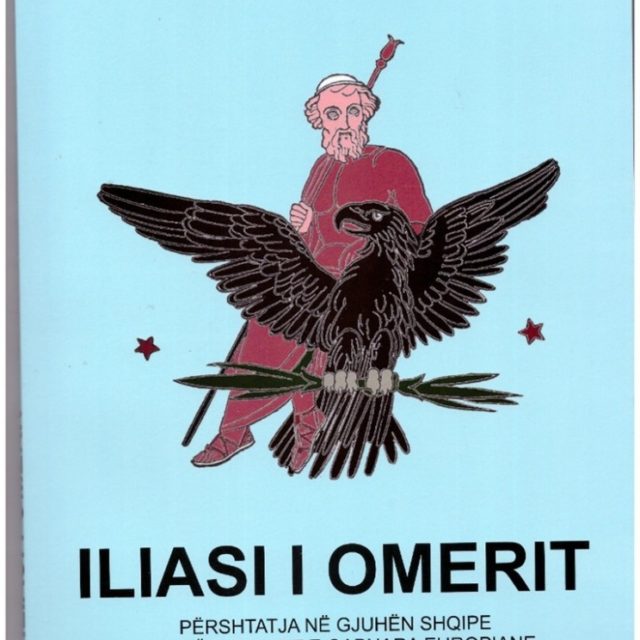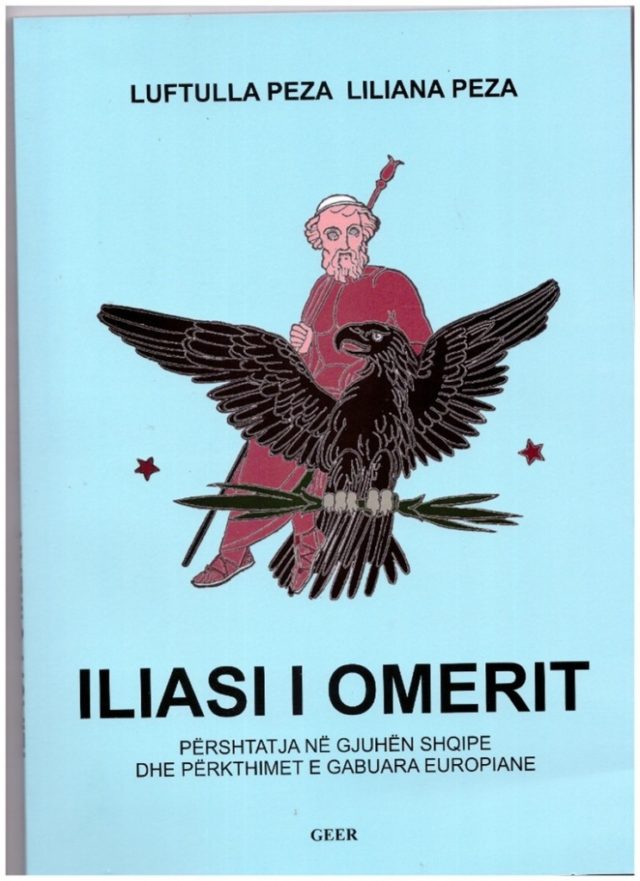ABSTRACT

Homer’s Iliad is the oldest work written in European literature and as such has been praised by scientific circles with the highest grades. Iliad handles high-level artistic events from the Trojan War around 1250 BC between the Pelasgian city-states of Troy and its allies and the attacking Achaeans on the other with their allies. The poem’s verses accurately describe the various heroic events, battle heroes, and the behavior of the Olympian gods with Pelasgian Zeus at the center, supporting one or other war hero at a time.
This book should be in all Albanian homes, because it gives pride to our race.
Homer is the first author in history, which gives us quite clear, that Zeus and Dodona are Pelasgian: “Ζεῦ ἄνα Δωδωναῖε Πελασγικὲ” / “Zeus is part of the Pelasgian Dodona”, Iliad, song 16, verse 233.
But four key issues have come to light in recent years, which constitute the essence of this book:
1-The analysis of some verses from different songs of Iliad of Omer shows that all
the words of the verses consist of ancient words, which have the meaning only in today’s Albanian language. These words belong to the ancient Pelasgian language, which possessed Europe and the Mediterranean during the late Stone and Bronze Age and which today survives only in Albanian. Thus it is fully established that the Homer’s Iliad is a major literary work written in Pelasgian language, the most ancient version of the Albanian language.
2-None of the Iliad translations that we checked, starting with the oldest Latin, Albanian, Greek, English, French, German, Italian, Spanish, Rumanian, Russian, Czech, Polish, Croatian, Serbian, Estonian and Turkish, can not be called “translation” of Homer’s Iliad, because the contents of these “translations” do not match the content of the original of this Homer’s work. This happened because no one of the translators of Iliad knew Omer’s language. For this reason the translators did not translate the verses of Homer’s Iliad, but translated other verses from translations into different languages, presented as verses of Iliad of Homer.
3-Even the Greek translators did not translate the verses from the text of Homer, but verses of other translations in different languages, presented as if they were translations of the verses of Iliad of Homer. This is how the Greek myth falls, which has always treated Homer’s Iliad as a “literary work in the Greek language” and Homer the Greek poet. Homer and other ancient authors such as Herodotus, but also later, never mention the Greeks in their texts, because in their time the Greeks had not yet come to the Aegean region. The Greeks came to our region during the first century BC, when they were first mentioned and took their name from the Roman invaders.
4- To write Iliad, by Homer the Pelasgian alphabet, known in Central Illyricum since the Neolithic, has been used. The ancient Pelasgian alphabet during the Iron Age, the last millennium BC, was adapted by almost all Mediterranean peoples of Pelasgian origin to write their language: the peoples of the Illyrian peninsula: Illyrians, Epirotes, Dardanians, Macedonians, Thracians, Dacians and Paeonians; the peoples of Asia Minor: the Lydians, Phrygians, Lycians, Carians, etc; the Apennines: Etruscans, Messapians, Venetians, Rhetians, Kamuniks, Lepontics, etc. The Lydians have written their own language, many inscriptions are preserved in the language of the ancient Lydians. Initially the ancient alphabet of Lydia was used to write the verses of Iliad, then adjustments were made in Athens.
In Esmyrna of Ionia, the kingdom of Lydia and later in Athens, during the 8th century BC this alphabet was widely used with the necessary additions and substitutions.
Before European culture, there is a very important and urgent task: Homer’s Iliad must first be adapted to Albanian and then translated into foreign languages to serve modern civilization. For this, an appropriate editorial office should be set up to deal with the adaptation and editing of Homer’s Iliad and Odyssey into Albanian and then their translation into English.
The new book has 162 pages in A4 format, has pictures and costs 2000 lek / 18 Euros. You can contact the authors by messenger or e-mail: [email protected]
